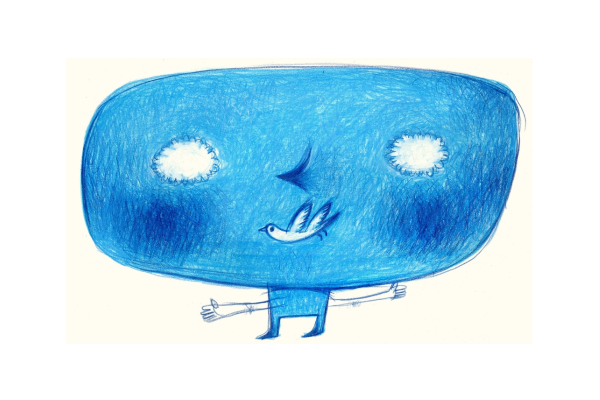
One of the most difficult challenges I’ve had as a mental health consumer advocate is when people deny our lived experience. It drives me nuts.
So-called recovered consumers.
Last year I came across a person who used the term ‘so-called recovered consumers’. Worryingly, this person had influence in national mental health policy and she directly challenged the credibility and relevance of consumer advocates.
She believed that no-one could really recover from ‘serious mental illness’, because that had been the experience of her family members. And so, her logic went, if people with ‘serious mental illness’ can’t really recover, then consumer advocates like me could never have been properly unwell to begin with. We can’t possibly represent the people who most need help. We have no relevance.
Having to work with this person made me feel emotionally dizzy. Initially her words hurt me deeply. I cried. And then I got angry – REALLY angry. I wanted to call her a kind of holocaust denier, but I had to remain ‘professional’. Damn it.
For years of my life people in power told me how mad I was, how there was no hope for me. They used their version of the truth to hurt me and control me. I railed and agonized against this pessimistic prognostic doom and was lucky to come out the other side. And now that I have, it feels monumentally outrageous to have the whole thing denied. Worse, it’s a poignant reminder for me of having my experience of childhood trauma denied.
And then someone suggested to me that this woman had no hope in her life. I realised this was true. I began to feel sad for her. I began to see that she didn’t understand what recovery really means, and that she was mixing up clinical recovery (getting rid of symptoms) with personal recovery (living the life we want and value). As she spoke about experiences in her family I realised that they had been exposed to universally poor services. That started to make me feel angry on her behalf. I tried to reach out to her, but it didn’t go well.
It became so hard to know how to work with someone who didn’t believe in me. So hard to balance my sadness, anger, professionalism and compassion. So hard to be the change I wanted to see.
And despite having grown some compassion for this person and her perspective, I kept coming back to what I believe: that denial of truth is dangerous, no matter how good someone’s intention may be.
This issue is not uncommon
The views of this person are not uncommon. Recovery is still commonly misunderstood. Many people receive poor services. And many people continue to believe that consumers who speak about recovery, who advocate for a better mental health system, simply don’t have relevance.
Back in January an article was published on The Huffington Post that presented similar views, and it has been ‘liked’ by 17,000 people:
I wish we would retire the word “recovery.” When local and national mental health policy is shaped by high-functioning consumers who have been able to manage their illnesses rather than by the sickest patients and their families, it’s the equivalent of only allowing stage 1 cancer survivors to drive the narrative and take most of the funds.
Long, L (2015). 5 Reasons I Wish We Would Stop Talking About ‘Recovery’ for Serious Mental Illness And the Word I Wish We Would Use Instead. The Huffington Post.
The author of this article, Long, spoke about the death by suicide of a friend’s son. This is so difficult.
How do we speak our truth as consumers and survivors, when heartbreaking stories about suicide by young people are used to justify our supposed irrelevance as people with valuable experience to share?
I struggled to articulate my views about this article. Again my emotions spun about me and made it hard to see.
Heartbreak for the death of this young man.
Compassion for this woman’s grief and frustration.
Anger about my life’s toughest journey being considered irrelevant.
Frustration about an obvious misrepresentation of recovery being promoted on a high profile website. For goodness sake, I thought, hope is a founding principle of recovery! Without it there is no recovery!
Annoyance at people who add to the confusion about recovery by suggesting that recovery is a choice, which completely ignores the sweeping barriers that exist outside us as individuals.
Despair at the huge volumes of people who ‘liked’ this article.
My poem: I am the person of whom you speak.
In the end, I wrote a poem. It felt like the only written form that could hold all of my conflicts. Until recently I have only shared this poem with a few people. I am a bit embarrassed; I don’t know if this is good poetry or not. I worry I just sound like a teenager in angst. But I have decided that just doesn’t matter. Whether or not it’s a good poem, I think it is good truth, for me, at least.
I recently asked someone to read this poem for me at a hearing voices day event. And then I thought, well, why not just put it out there?
As with so much of what I write about, I’m sure I am far from alone in my frustration about how to live with, and respond to, challenges to recovery, to the consumer movement, and to our personal truths.
So, here it is.
I am the person of whom you speak.
I am the person of whom you speak.
Recovery enactor making trouble
Crazy concept carved out of pain
With learned hands and hopeful hearts
of peers and allies behind the mask
No bullshit cure medical balancing nonsense
Recovery hijacked colonised tarted distorted
Real recovery
as birthed by the nutters who’ve done it
no smarter, no braver than those who haven’t
often just luckier, sadly
to find their way to
a life to cherish, even with mad crazy pain
I am the person of whom you speak.
Never have never would blame my mates in madness
Blame the systems a bit, but
well, maybe a lot
That system’s lots madder than we are
Prophecies and magic pills that make you fat
Power only turned off at the ears
Enriching chemistry stories
Happy ending for some, snake oil for most
I am the person of whom you speak.
Stage one cancer survivor type, it seems
So strange no one told me at the time
Lifelong disease, they said
Broken-brain-befuddlement
Schizo-unfriendlia-itis-all-ova-now
That’s what they said, well something like
Pills for ever, realistic dreams
of pension forms and cheap hobbies and clean dishes
Socially integrated, there’s a good girl
Acceptable ways to express your pain
Bit of lactating on the side, both sides, never mind
Something to fill drugged days and terror nights
Everyone needs something

I am the person of whom you speak
My voice said evil whore bitch die
Not real apparently
Don’t know why it was so scary
Not proper mad, just stage 1 lumps
Strange this so called lumpy illness of mind
Must have evidence to treat baseless theories
I know where I wish they’d stick that base
Don’t worry, must be true, says the sane clever ones
Don’t know why I cried to die, I tried to die
So many times… So lucky
But not really, it’s just not real, you see
I am the person of whom you speak.
A rampaging angry riddle annoyance
If I was proper mad then I couldn’t recover
So maybe I wasn’t or maybe I didn’t
Not sure how to hold the hope you speak off
It’s lost somewhere
Between the paradox and denial
of me
I am the person of whom you speak.
I guess I’m mistaken
About those yelling years and tragic tears
Silly me
Can I have back the hours in locked seclusion?
Swallow the piss-soaked carpet of screams?
Retract the sobs in caged up cop cars?
Hug my fat zyprexa belly
And forget the shocking electro stuff
Well that helps to forget
Shrug off the history, got it all wrong
Never mad to start with
Oh thank goodness, what a relief
They’ll have to pay me millions
I am the person of whom you speak.
I say
Recovery is not cure
It’s a gleam in a cavern of screams
It’s finding out you want to live
Finding out how to live
Finding out you love to live
That your pain can be a gift
That your soul has value
That some of those who’ve been there got out
And if they could do it, maybe I can
With hope, and a hand, and a heart
But, shit, it’s not easy
Can’t always do it, and can’t do it alone
I am the person of whom you speak
I say to you
Recovery is not what you think
Neither am I
I wish you really knew me
Before you judged me
I wish I could have held your friend’s son’s hand
I wish the system had given him
Hope
Love
Care
Recovery
I wish the whole bloody history of madness could be reborn like the phoenix
I wish we could share our dreams together
For making the system better
But I don’t wish recovery talk would stop
Or my life would have, too
Originally published 23 September 2015. Re-published 27 April 2019.
Want to read more?
Check out more blog articles and recovery resources or subscribe to my emails.
Comments